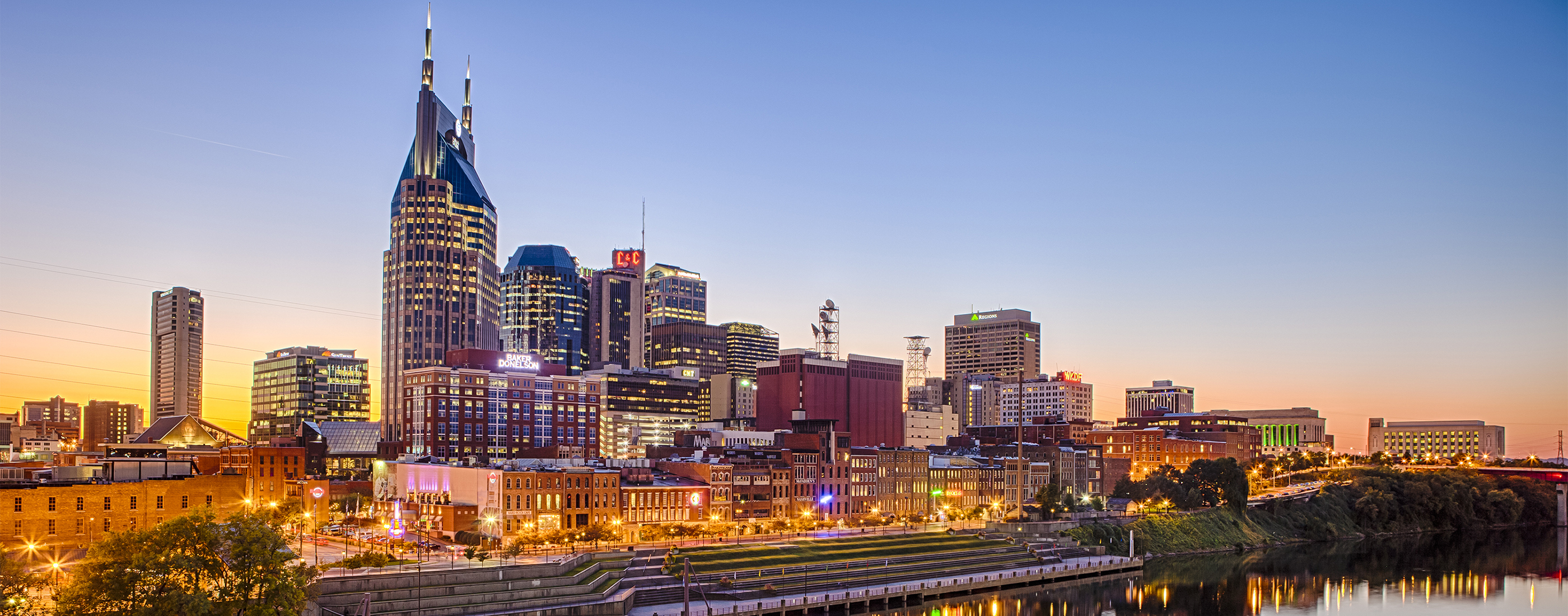
November Calendar of Events
Curated by: Keosha Thomas
November 1st
- Colors Worldwide Presents: R & B Only from 8:30 PM – 1:00 AM. Are you ready to experience the 2019 R&B Only Tour at Marathon Music Works? Come hear your favorite R&B tracks dance, talk and enjoy the company of each other. 21 and up. Tickets start at $29.99. Buy tickets at rnbonly.com.
- TrapNGames Game Night and Spades Tournament from 8:00 PM – 12:00 AM at the Art Urban located at 709 Main Street. Tickets are $10.00 on Eventbrite. 21 and up BYOB.
- Comedian Ali Siddiq at Zanies 11/1 – 11/3 General Admission: https://zaniesnashvilletickets.laughstub.com/event.cfm?cart&id=531748
November 2nd
- Music for Kids Festival – A full day of free music lessons for kids includes instruction on fiddle, guitar, bass, steel guitar, piano, drums, mandolin, banjo, ukulele, harmonica and vocals. A lunch performance is included. Kids can bring their own lunch or purchase a box lunch from Zaxby’s in advance for $7. Sponsored by Nashville Parent. The festival will be from 8:00 AM – 3:00 PM at the GRAND OLE OPRY HOUSE2804 Opryland Drive, Nashville, TN, USA . More information here: https://nashvilleparent.com/thing-to-do/music-for-kids-festival
- Join Creative Girls Rock® for an evening of philanthropy as they host the inaugural Charity Sneaker Ball in Nashville, TN to support nonprofit organizations and youth development programs within the Greater Nashville community.Buy tickets here: https://www.eventbrite.com/e/creative-girls-rock-charity-sneaker-ball-tickets-72469364821
- Trap Paint Party is a great ladies night, date night or group party with trap music playing, as you sip your drink of choice and create your masterpiece. Tickets available at – https://www.eventbrite.com/e/trap-paint-party-tickets-78881200795
November 3rd
- Kevin Gates “Im Him Tour” will be at Municipal Auditorium. The show will start at 8:00 PM. Get tickets here: https://www1.ticketmaster.com/kevin-gates-im-him-tour/event/1B0056FDC7AD53DB?dma_id=343.
November 4th
- Nashville Design Week is Monday to Friday, November 4-8, 2019, at numerous locations throughout Nashville. The week will feature 30 events, exhibitions, open studio workshops, site visits, and talks. For a full schedule and information, head to the Nashville Design Week calendar.
November 6th
- Salon@615: Special Edition is pleased to present Ta-Nehisi Coates, award-winning non-fiction writer, for his highly anticipated debut novel, The Water Dancer. A copy of The Water Dancer is included with every ticket. Buy tickets here: https://cart.tpac.org/10028/10029.
November 8th
- 2019 Alpha & Omega Austin Peay Homecoming Day Party in Clarksville, TN. Come out and enjoy the social premiere event of the 2019 APSU Homecoming. Good food, good music, networking and as always a good time. Hosted by two premiere organizations:Psi Pi Chapter – Omega Psi Phi Fraternity (Unincorporated) & Kappa Zeta Lambda Chapter – Alpha Phi Alpha Fraternity. Tickets for sale on Eventbrite.
- Fisk University Homecoming Step show will be from 8:00 PM – 11:00 PM. Come watch the Divine 9 step and battle it out. Tickets are $20 on Eventbrite.
- Coca Tea and The Step by Step Band Live in Concert at the IV Lounge located at 1316 Antioch Pike. For ticket information call 615.378.8885.
November 9th
- Fisk University Homecoming Basketball game vs Morris College 3:00 PM – 8:00 PM at Fisk University. Tickets are available for $30.00.
- Join wine producers from across the state, showcasing the best wine Tennessee has to offer. SipTN is made up entirely of Tennessee Wineries, come sip, savor, and purchase bottles of your favorite wines. Featuring Live Music, Artisan Crafts, Gourmet Food and fantastic Local Wine. Proceeds from the event stay local, benefitting the Nashville Friends of the Farmers’ Market and the TN Farm Winegrowers Alliance. Buy tickets here: https://www.eventbrite.com/e/2019-siptn-wine-festival-tickets-61429953645.
- The Set Grown A$* Kids Part 2 Hosted by Set Crew and Shaanah Montana at 5855 Charlotte Pike. This party will have art installations, food, deejays, special drinks and more. Buy tickets here:https://www.eventbrite.com/e/the-set-grown-a-kids-pt-ii-tickets-77430291085
- SchoolBoy Q Crash Tour is coming in concert to Municipal Auditorium with Special Guest NAV Show starts at 8:00 P.M. Tickets are for sale on ticketmaster.com.
- Blue Jeans and Blazers Party at Ponobes Party Bar & Grille located at 903 Rivergate Parkway Goodletsville, TN 37072 at 9:00 PM – 2:00 AM. Tickets are on sale for 20.00 General Admission. Get ticket information here: https://www.eventbrite.com/e/blue-jeans-and-blazers-tickets-73690898461.
November 10th
- Tennessee Titans will be ready to take on the Kansas City Chiefs at the Nissan Stadium. The game will start at 12:00pm. Titan up and buy your tickets here today: https://www1.ticketmaster.com/tennessee-titans-vs-kansas-city-chiefs-nashville-tennessee-11-10-2019/event/1B0056758B3D2B50?landing=c&awtrc=true&c=SEM_TMNFL_ggl_937368661_47131692419_titans&GCID=0&&gclid=Cj0KCQjw6eTtBRDdARIsANZWjYaUauHPa8KBaI__xWth8GYaRpRB1-0ms92gkOP3hv3v2lWyHWkyxPoaAh1NEALw_wcB&gclsrc=aw.ds .
- Scorpio Brunch celebrating the birthdays of Joshua Munday, Jason Luntz, and Derek Woods. Nov. 10 2:00 PM – 6:00 PM at Events @ 624, 624 Jefferson Street. Bottomless Mimosas and unlimited food. Tickets available at www.joshuamunday.com.
- Comedian and internet sensation Jess Hilarious will be at Zanies bring all the funny jokes Nov 10 – 11. Show starts at 7:30 P.M. Sunday and 7:00 P.M. Monday. This will sell out fast: https://zaniesnashvilletickets.laughstub.com/event.cfm?cart&id=531837
November 12th
- Woman Owned Business Webinar will be held on how to learn the step-by-step process of applying and finding grants? The webinar will be 6:00 P.M – 7:00 P.M. It costs $59.95 early bird registration. Regular registration is $69.95. Register here: grantsforwomen2019.eventbrite.com/
- Please join Corner to Corner for The Academy Graduation celebration as they honor the entrepreneurs from their Fall 2019 classes. Hosted by Studio 615 at272 Broadmoor Dr Nashville, TN 37207, the night will include delicious food, great stories from local entrepreneurs, and a pitch competition far more encouraging than Shark Tank. The graduation takes place 6:00 PM – 8:00 PM. Registration is free at Eventbrite.
- BIG KRIT will be at Marathon Music Works performing at 8:00 P.M.. Special guests include Domani Harris (TI Son) and Rapsody. Doors open at 6:30 P.M. Get your tickets today on Eventbrite here: https://www.eventbrite.com/e/big-krit-tickets-69328213553?aff=aff0songkick&sk_eid=38759644&uid=.
November 13th
- Disney Junior Holiday Party at TPAC is a dazzling musical wonderland where children and their families can sing and dance along to their favorite Disney Junior songs plus holiday classics with their favorite Disney friends, including Mickey & Minnie Mouse, the Puppy Dog Pals, Vampirina and many more, plus a special visit from Santa Claus! Show starts at 6:00 PM at the Tennessee Performing Arts Center. Tickets are available at: https://www.tpac.org/event/2019-11-13-to-2019-11-13-disney-junior-holiday-party/
- The 53rd Annual CMA Awards will be live from the Bridgestone Arena. Expect to see all your favorite country music artists. Tickets are available at ticketmaster.com.
November 14th
- Grammy award winning singer India Irie will be performing live at the Nashville Symphony, with her “The Worthy Tour”. Show starts at 7:30 PM. Buy your tickets here: https://www1.ticketmaster.com/indiaarie-with-the-nashville-symphony-nashville-tennessee-11-14-2019/event/1B005716EC24AAFA.
- Coming Live from the LivingRoom at Duloc 1606B 7th Ave North, Nashville, TN 37208 7:00 PM – 9:00 PM: Nashville’s own Ryan Christopher sets the stage, premiering his new video, “Flowers.” An experience brought to you by Darren Armstrong whose mission is to expose Nashville to the taste complexities of small craft beer in a cool environment. A flavorful Bourbon-inspired journey through craft beer, wine, and whiskey, we Guide you the best way possible. Purchase tickets at Eventbrite.
November 15th
- Legends of Hip Hop Tour will be at the Municipal Auditorium with Too Short, DJ Quik, Bun B, Juvenile, Scarface, 8Ball and MJG for a night of legendary rap hits. You don’t want to miss this show. Buy tickets here: https://www1.ticketmaster.com/legends-of-hip-hop/event/1B0056C582B2232A.
November 18th
- November 18-24th is Black Entrepreneur Week. A series of partnership events celebratingGlobal Entrepreneurship Week. Learn more here: https://www.facebook.com/blackentrepweek/.
November 20th
- Glow Nashville starts today! It is considered the newest must-see holiday attraction in the Southeast, GLOW Nashville features one of the country’s tallest Christmas trees, millions of lights adorning larger-than-life sculptures, epic ice skating and tubing experiences, a life-size Santa’s Workshop and many more immersive activities designed to create memories for all ages. Learn more and get tickets here: https://glowholiday.com/.
- Have you ever wanted to check out Jaden and Willow Smith? Well now is your opportunity as they will be in Nashville performing their, Jaden & Willow: The Willow and Erys Tour at Cannery Ballroom. Doors will open at 7:00 PM. Buy tickets here: https://www.eventbrite.com/e/jaden-willow-the-willow-and-erys-tour-tickets-75898242687?aff=eac2
November 22
- Social Society Presents Social Giving Happy Hour with Lawbreaker at the Nashville Urban Winery located at 715 Main Street in Nashville benefiting Why We Can’t Wait Inc. The action starts at 5:00 PM – 10:00 PM. Free with an Rsvp at Eventbrite.com.
November 23
- Looking for a fun kid activity, then why not attend ‘Cora Colors Kids Glow Paint Party’ 12:00 PM – 2:00 PM at Elevate Cafe. The admission is $20.00 which includes the painting session and pizza. It’s sure to be a fun time!
- Musiq Soulchild will have two shows at the City Winery on 11/23. Both shows are sold out but there is a wait list you can register here: https://citywinery.com/nashville/catalog/product/buytickets/id/2767070/ .
- Comedian Sheryl Underwood co host on The Talk, and member of Zeta Phi Beta Sorority Inc. will hit the Zanies stage! Get your tickets today these will go very fast: https://zaniesnashvilletickets.laughstub.com/event.cfm?cart&id=529872
November 24th
- The annual TASTE, a food and beverage tasting event presented by The Nashville LGBT Chamber, is Sunday, November 24, 2019, from 5:00 PM to 8:00 PM at OZ Arts Nashville. Up to 400 attendees can expect food and drinks from top chefs and bartenders, a silent auction, DJ, and dancing. Early bird tickets are $75 until Thursday, October 31 and include food and beverage samples. This event is 21 and over only. Buy tickets here: https://www.tastenashville.org/.
- Holiday LIGHTS at Cheekwood is back again for the fifth year with a one-mile-long path featuring over a million twinkling lights. Pinnacles of Light, an outdoor display showcasing 17 custom-made LED trees with programmed lights, is new this year. There will also be real reindeer, s’mores pits, holiday carolers, Santa, gingerbread workshops, and cash bars with wine, beer, and hot chocolate. The Mansion will be decorated, so be sure to check it out while you’re there. Holiday LIGHTS is a timed-ticketed event from 5:00pm to 10:00pm. The exhibit is open seven nights a week. Admission ranges from $9 to $27 depending on membership status, time, and date. Purchase tickets here: https://cheekwood.org/calendar/cheekwood-holiday-lights-event-nashville/ .
November 28th
- Kennie Playhouse Theatre will debut Christopher Moore’s play “The Last Season.” It is a play celebrating the rich history of the Negro Baseball Leagues. Purchase your tickets here: www.thelastseason.eventbrite.com. The play runs 11/28 – 11/30.
November 29th
- Zoolumination: Chinese Festival of Lights Come see the Nashville Zoo in a whole new light and enjoy the country’s largest Chinese lantern festival. Over 500 custom-made silk lanterns will be spread across 60 acres, creating elaborate displays with some of your favorite Zoo animals, holiday-themed scenes and even a 200-foot-long dragon. The fun begins at 5:00 PM – 9:00 PM. Tickets are available from $14.00 – 19.00.
November 30th
- Live. Life. Love: Concert For Suicide Prevention presented by Journey’s Featuring: LIZZO, JON BELLION, LOUIS TOMLINSON, LOVELYTHEBAND, & CHELSEA CUTLER. Buy tickets here: https://www1.ticketmaster.com/event/1B005743E5956306\
- Come out and see DCYoungfly bring the funny onstage in Nashville at Zanies. General Admission tickets are $25.00. https://zaniesnashvilletickets.laughstub.com/event.cfm?cart&id=531064
